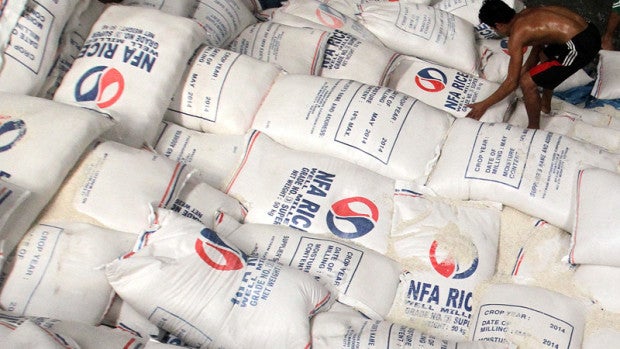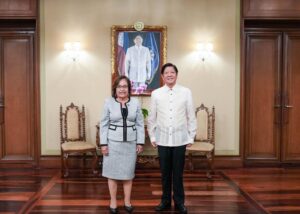
NFA rice (INQUIRER file photo / RAFFY LERMA)
MANILA, Philippines — Albay 2nd District Representative Joey Salceda urged the House of Representatives to go beyond its probe on the improper disposition of government rice stocks.
He is also asking the National Food Authority (NFA) and the Commission on Audit (COA) to account for P152 billion cash inflows the NFA received from 2018 to 2022.
Salceda, the vice chair of the agriculture and food committee, said Congress should include all sales of buffer stocks since the Rice Tariffication Law took effect in 2019, covering the management performance of the NFA from that year until 2023.
“The NFA is supposed to have received a total of P85.7 billion in national government subsidies and another P66.3 billion in sales of rice stocks from 2018 to 2022. That totals to P152 billion from those five years alone,” Salceda said during the hearing on Thursday.
“That is additive. Even with a loss incurred of P20 billion – or the difference between the direct cost of rice and the sale of rice – that’s still P132 billion to account for,” he added.
Salceda explained that the Rice Tariffication Law has limited the NFA’s role to buffer stocking from local farmers.
However, he said, “in theory, the NFA should sometimes make gains, rather than merely make consistent losses, if it can auction its rice stocks.”
“The effective buying price of palay is P23 per kilo for clean or dry palay. They sell at P25 per kilo,” he noted.
“It can, of course, be better with auctions when you sell to the private sector. Milling can be as low as P1.8 per kilo when you achieve economies of scale. So, sometimes, the NFA should make money,” he stressed.
“From selecting who mills the rice to choosing who buys the rice, there are cracks for corruption and inefficiency. This should be the subject of audit,” he added.
Salceda also recommended that the panel ask the commission to create a comprehensive report of NFA’s finances, management practices, and adverse findings during the period covered.


